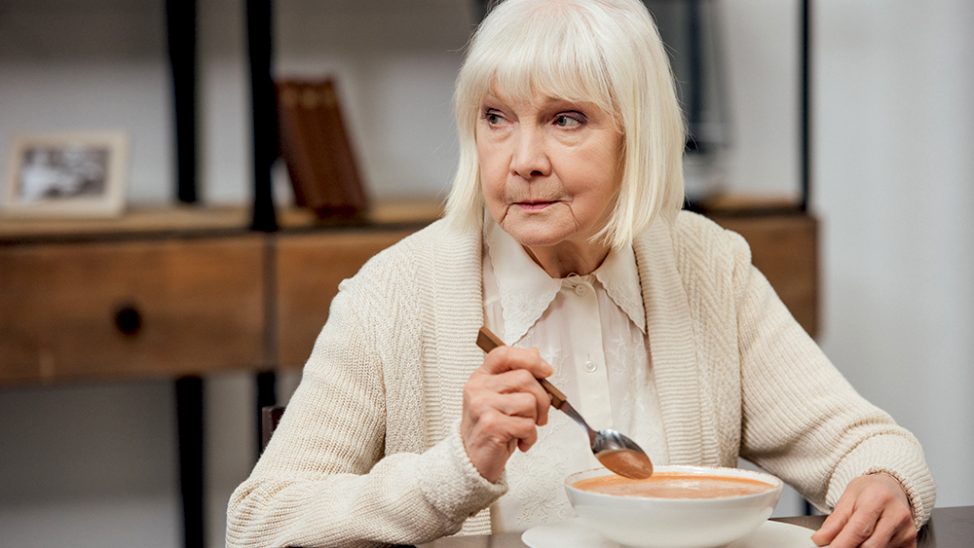By: Lina Marquez, RDN, LDN
As seniors are getting older and less active, their daily calorie requirements go down. Therefore, seniors tend to eat start eating less and consequently their appetite starts declining naturally. However, an important question is frequently raised by their family members; Is my mom/dad eating enough? But most importantly is to consider if your older adult is getting all the necessary nutrients to sustain their nutritional needs.
A balanced diet consisting of fresh fruits, vegetable, whole grains, lean meats, and dairy products is important at every stage of life. Therefore, it is important to turn your attention into what specifically your older parents are consuming. If their daily consumption is not balanced or if they are only consuming foods from one or two food groups, there should be reason of concern because limiting intake to only a few food groups will create deficiencies in their nutritional status. I have seen this happens when older adults are cooking for themselves and to make it easier, they tend to cook the same thing over and over. There are other causes for eating the same foods frequently or simply for not eating enough that you should observe closely.
- Difficulty chewing:
- Ill-fitting dentures, cavities or gum disease can make it difficult or painful for a senior to chew food, so they stop eating.
- Inability to cook:
- Seniors may have enjoyed cooking when they were younger but now, they may find it difficult to lift heavy pans, chop vegetables and perform other rigorous tasks required to prepare a meal. Additionally, if they are cooking for one, they may not find the effort to be worth it and financially does not make sense either.
- Food preferences:
- Older adults may have cravings or food preferences that sometimes they do not mention to their family members or caregivers to avoid being a burden for them. It is important that they eat for pleasure, not only because they must or feel force to. Ask them what they would like and even at what time of the day they would like to have their food.
- Loss of Taste:
- It is no secret that with age, taste buds start losing their ability to detect flavors. Therefore, food that is not well seasoned might be flavorless to seniors and therefore they lose interest in eating.
- Dehydration
- It is important to pay attention to dehydration. Not drinking enough liquids, especially water can cause dehydration and it causes loss of appetite. Medications and aging itself are additional causes of dehydration. Therefore, it is important to make sure your seniors are properly hydrated.
Having a senior to take care of is not an easy task. It entails a lot of responsibility and effort but nutritionally speaking can be exhausting. Because we know that if our seniors do not eat enough or do not consume all the necessary nutrients, they may have serious consequences or concerns, including a weak immune system, increased risk of infections, poor wound healing, muscle weakness, decreased bone mass and others.
Fortunately, there are ways to make healthy, appetizing foods more easily accessible for seniors and this is meal delivery services, especially if these are tailored exclusively to older adults.
Meal delivery services is nothing new, they have been around us for quite some time now. But meal delivery services especially focused to tend to the elderly are of great help because they take into consideration all those issues that can limit the daily intake of your seniors, such as taking care of season liberally with herbs and other flavors, pureeing foods when chewing and swallowing are a challenge, and having many options to choose from to entice even the pickiest eater. Additionally, there is no cooking or grocery shopping involved, making it an easy option to ensure your seniors are getting the proper nutrition they need to sustain their quality of life.

